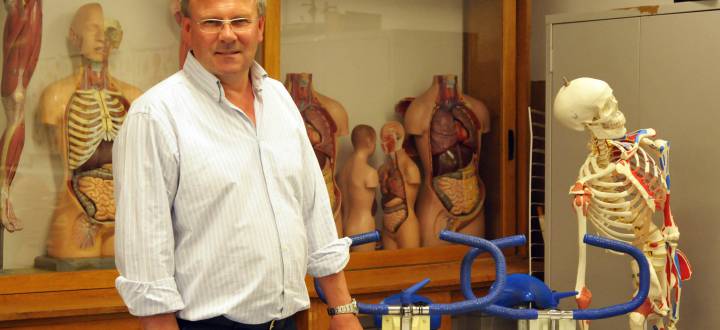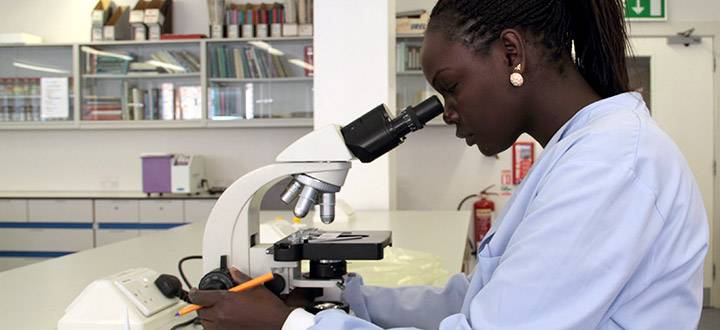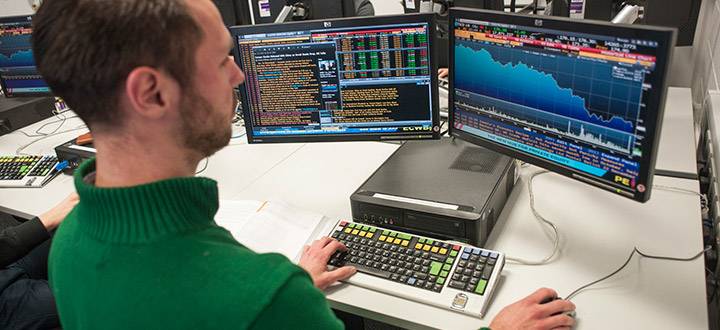Reviving the analogue age
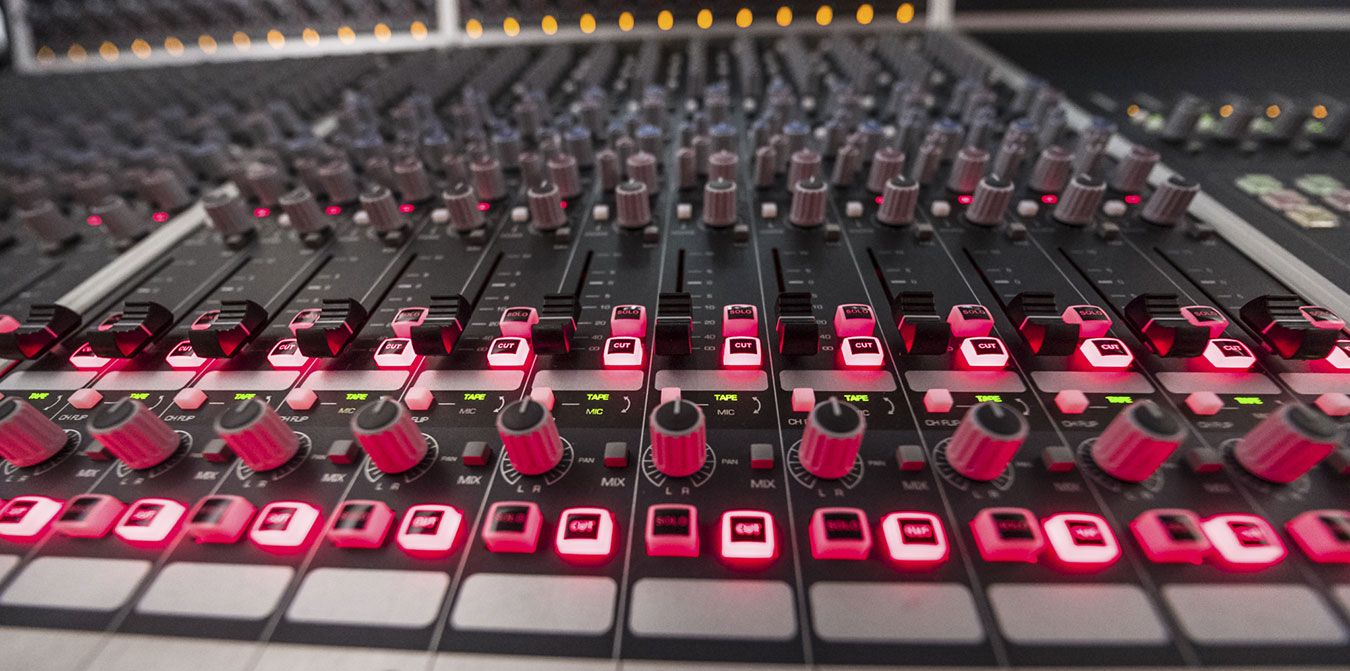
The Visconti Studio works with musicians and heritage organisations to preserve the sounds and practices of the analogue past for the digital future.
It's impossible to imagine the 1960s and 1970s without music. It was the age when iconic record studios such as Abbey Road, Trident and Olympic experimented with analogue technologies to produce and record songs that continue to resonate today. Even in this digital age, vinyl is experiencing a revival; led by David Bowie's Blackstar album, 3.2 million LPs were sold in the UK in 2016, representing a 53% increase on the previous year.
This resurgence can't be explained away by vinyl's trademark crackle alone. Digital technologies are not only transforming the quality of sound, they are shaping our social and cultural experiences.
Listening to and handling LPs or cassettes allows us to relive a bygone era – an era that could be confined to the annals of history if the analogue recording and production techniques associated with it are not judiciously preserved.
Losing a rich heritage
"Analogue music studio practices are becoming obsolete," says Dr Leah Kardos, a lecturer in music at Kingston University London. "As the original practitioners are ageing, few engineers and producers specialise in analogue studio work anymore. Spare parts for vintage equipment are increasingly hard to get and the practical knowledge associated with their operation and repair is being lost. The rich heritage of analogue studio practices is on the verge of disappearing."
Dr Kardos is project leader at Kingston University's Visconti Studio, a practice research facility named after the legendary music producer Tony Visconti. Led by Professor Isabella van Elferen, the studio is at the heart of a large-scale, collaborative research project with the British Library and Science Museum. Equipped with a rare collection of vintage instruments, its aim is to not only document and safeguard the legacy of the analogue age, but to actively revive analogue objects and practices.
"Analogue production and recording practices have an important heritage value, but this heritage is not sufficiently protected," Dr Kardos continues. "The analogue studio's material and practices require public and academic attention, which is why The British Analogue Music Studio: Heritage, Nostalgia, Future is documenting, capturing, and preserving these practices."
Methodology
The research project is divided into three core strands:
i. Analogue Analysis
Researchers will analyse material such as songs, analogue technologies and scores; musical practices such as composition, recording and production; and cultural trends such as technostalgia and retrofuturism.
ii. Analogue Archaeology
Visiting artists and well-known producers, including Tony Visconti, will work alongside students and researchers to observe and share production practices, as well as create new compositions.
iii. Analogue Heritage
Various aspects of analogue studio culture will be preserved and made accessible to the public. Songs will be digitised, technology collections curated for museums, creative practices revived and paper collections archived
Recording the future
The Visconti Studio has already produced music with singer-songwriter Mary Epworth, the band Artbreak, and recorded material for Oly Ralfe's new album and for the group Flight Brigade. Over time, the research team expects to produce a number of significant outputs, from musicological publications to records, tracks and albums, videos and interviews.
A public-facing archive
The outcomes of the research will be publicly shared in a number of ways: through an open access online archive containing audio files, photos, interviews and videos; through an interactive forum of citizen science called "Analogue Audiophiles"; in public workshops at the Visconti Studio, the British Library, and the Science Museum; and in 2020, a month-long international Analogue Music Studio Festival.
The Visconti Studio: Living up to its name
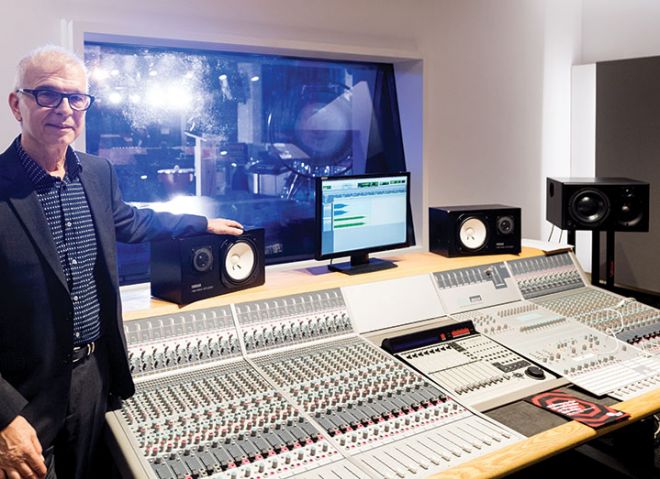
Tony Visconti has worked with the likes of Thin Lizzy, U2, Morrisey and Marc Bolan. Today, he is still active in the music industry, having recently produced Bowie's final album Blackstar, which was released in January 2016. He is also a visiting professor at Kingston University. He will be interviewed alongside other analogue producers and practitioners to create a musical ethnography.
Find our more about Dr Leah Kardos.
Find out more about Professor Isabella van Elferen.
Find out more about the Visconti Studio.
Contact us
- For non-student research enquiries, email the Research Office
- Research contacts
- Graduate Research School contacts
- Business and Enterprise contacts
- How to get to Kingston University
Contact us
- For non-student research enquiries, email the Research Office
- Research contacts
- Graduate Research School contacts
- Business and Enterprise contacts
- How to get to Kingston University
